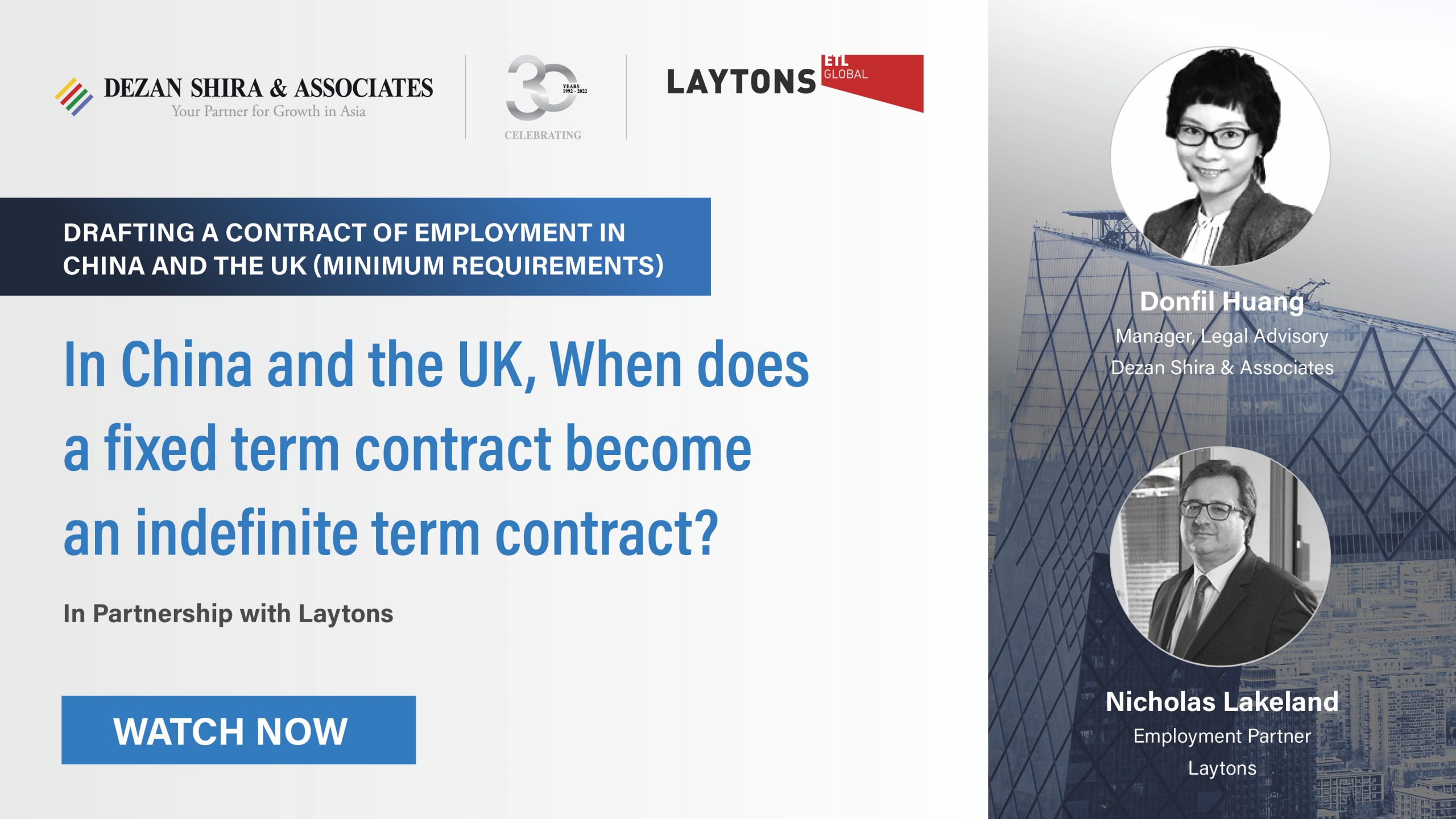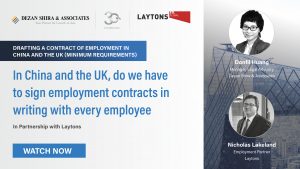Fixed-Term Contracts in the UK and China: FAQs
Our third episode in this series focuses on when a fixed-term contract becomes a continuous/indefinite-term contract in the UK and China.
This series concentrates on the UK-China business angle. Every week, we will add a new video that answers some of the most frequently asked questions about employment contracts in China and the UK. Each video answers the same issues from both the UK and China perspectives.
Key insights are provided by, Donfil Huang, Legal Advisory Manager at Dezan Shira & Associates, and Nicholas Lakeland, Employment Partner at Laytons.
In the UK, when does a fixed-term contract become a continuous contract of employment?
If after a series of yearly fixed-term contracts, an employee is given a fourth year’s worth of fixed-term contract, then the law will deem it that that contract is a continuous contract of employment and no longer a fixed term.
There are protections against employers continually seeking to have employees on fixed-term contracts so as to encourage employers to give them a permanent contract of employment.
The probationary period is usually spelled out which is often three months or six months. More than six months is not recommended and not approved by the employment tribunal when they look at periods of probation. An employer as a matter of good practice should know by six months whether or not the employee is someone that will fit the job and is suitable.
In China, when does a fixed-term contract become an indefinite-term contract?
An indefinite-term employment contract, a.k.a. “open-ended” or “non-fixed-term” employment contract, is an employment contract where the employer and the employee have agreed that there is no definite expiration date.
If you, as an employer, have signed an indefinite-term contract with an employee, then you may dismiss this employee without paying compensation – this only occurs in extreme situations, such as when the employee has committed a serious violation based on the company’s rules, has committed a crime, or when he or she retires or voluntarily resigns. If you want to dismiss an employee with an indefinite-term employment contract, you must pay compensation to this employee according to the law.
There are mainly three typical scenarios where you should enter into an indefinite-term employment contract:
1) First, if both the employer and the employee are willing to, they can enter into an indefinite-term employment contract voluntarily;
2) Second, if an employee has worked for the same employer for 10 years consecutively and if this employee proposes to sign an indefinite-term employment contract;
3) Third, if the employer and employee have signed fixed-term employment contracts twice consecutively and they are willing to renew the employment contract for the third time, in this scenario, the employer must conclude an indefinite term contract with the employee, unless the employee voluntarily requires entering into a fixed-term contract.
See more from the series
Episode 2
Episode 1
About Us
China Briefing is written and produced by Dezan Shira & Associates. The practice assists foreign investors into China and has done so since 1992 through offices in Beijing, Tianjin, Dalian, Qingdao, Shanghai, Hangzhou, Ningbo, Suzhou, Guangzhou, Dongguan, Zhongshan, Shenzhen, and Hong Kong. Please contact the firm for assistance in China at uk.ireland@dezshira.com.
Dezan Shira & Associates has offices in Vietnam, Indonesia, Singapore, United States, Germany, Italy, India, and Russia, in addition to our trade research facilities along the Belt & Road Initiative. We also have partner firms assisting foreign investors in The Philippines, Malaysia, Thailand, Bangladesh.
- Previous Article How to Choose the Right Company Name for Your Business in China and the UK
- Next Article Shanghai Releases 22 New Stimulus Measures to Boost the Economy










